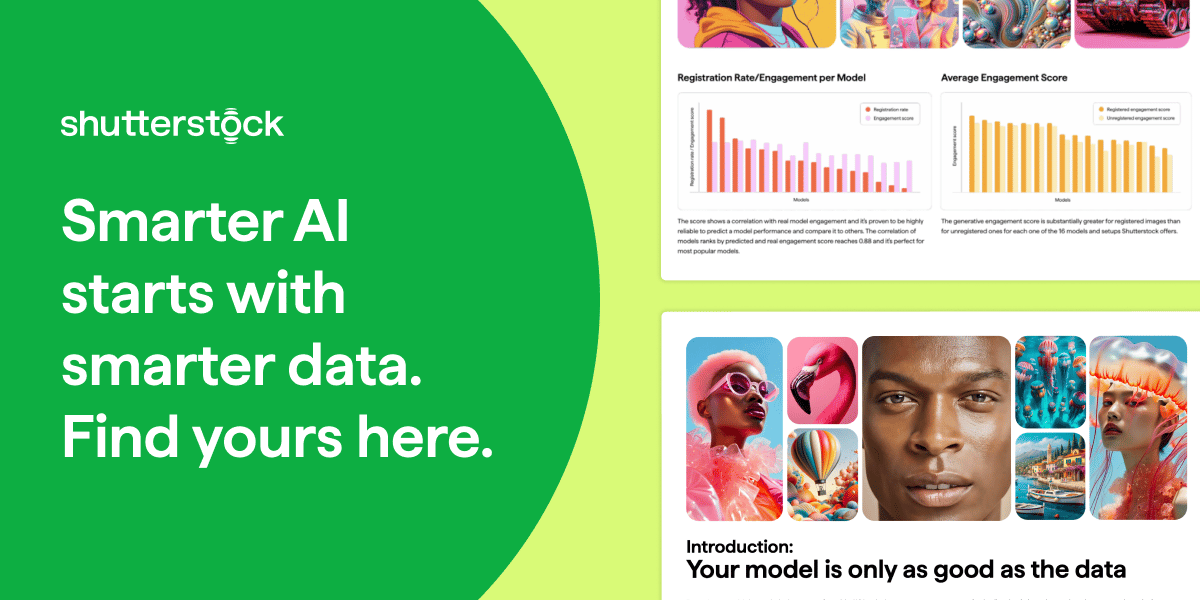- Insightful AI
- Posts
- ‘Selling coffee beans to Starbucks’ – how the AI boom could leave AI’s biggest companies behind
‘Selling coffee beans to Starbucks’ – how the AI boom could leave AI’s biggest companies behind
PLUS: xAI reportedly lays off 500 workers from data annotation team

In this Newsletter Today:
‘Selling coffee beans to Starbucks’ – how the AI boom could leave AI’s biggest companies behind
xAI reportedly lays off 500 workers from data annotation team
California lawmakers pass AI safety bill SB 53 — but Newsom could still veto
Top New AI Tools
Training cutting edge AI? Unlock the data advantage today.
If you’re building or fine-tuning generative AI models, this guide is your shortcut to smarter AI model training. Learn how Shutterstock’s multimodal datasets—grounded in measurable user behavior—can help you reduce legal risk, boost creative diversity, and improve model reliability.
Inside, you’ll uncover why scraped data and aesthetic proxies often fall short—and how to use clustering methods and semantic evaluation to refine your dataset and your outputs. Designed for AI leaders, product teams, and ML engineers, this guide walks through how to identify refinement-worthy data, align with generative preferences, and validate progress with confidence.
Whether you're optimizing alignment, output quality, or time-to-value, this playbook gives you a data advantage. Download the guide and train your models with data built for performance.
‘Selling coffee beans to Starbucks’ – how the AI boom could leave AI’s biggest companies behind
AI startups are shifting their focus to customizing AI models for specific tasks and interface work, viewing foundation models as commodities that can be swapped in and out as needed. This shift is driven by the slowing down of pre-training, the initial process of teaching AI models using massive datasets. The early benefits of hyperscaled foundational models have hit diminishing returns, and attention has turned to post-training and reinforcement learning as sources of future progress. Foundation model companies are still good at other fields, but their advantage is not as durable as it used to be. The competitive landscape of AI is changing, and foundation models may not have any price leverage if they lose competition at the application layer. This would turn companies like OpenAI and Anthropic into back-end suppliers in a low-margin commodity business. The success of foundation model companies, such as OpenAI, Anthropic, and Google, is inextricable to the success of AI.
xAI reportedly lays off 500 workers from data annotation team
Elon Musk's AI startup, xAI, has laid off 500 team members following an immediate strategic pivot. The company is prioritizing the expansion of specialist AI tutors and scaling back its focus on general AI tutor roles. This represents about one-third of xAI's 1,500-person data annotation team, which works on labeling and preparing data used to train its chatbot Grok. X, the company's social network acquired by Musk earlier this year, announced that it will immediately increase its Specialist AI tutor team by 10x. The company is hiring across various domains, including STEM, finance, medicine, and safety.
California lawmakers pass AI safety bill SB 53 — but Newsom could still veto
California's state senate has approved a major AI safety bill, SB 53, which requires large AI labs to disclose their safety protocols, create whistleblower protections for employees, and create a public cloud to expand compute access. The bill is now up to California Governor Gavin Newsom to sign or veto. Newsom vetoed a more expansive safety bill last year, which he criticized for applying strict standards to large models regardless of their deployment in high-risk environments or the use of sensitive data. The bill was influenced by recommendations from a policy panel of AI experts convened after Newsom's veto. The bill has been opposed by Silicon Valley companies, VC firms, and lobbying groups. OpenAI argued that companies should be considered compliant with statewide safety rules as long as they meet federal or European standards. Andreessen Horowitz's head of AI policy and chief legal officer claimed that many state AI bills risk violating constitutional limits on how states can regulate interstate commerce.
Used by Execs at Google and OpenAI
Join 400,000+ professionals who rely on The AI Report to work smarter with AI.
Delivered daily, it breaks down tools, prompts, and real use cases—so you can implement AI without wasting time.
If they’re reading it, why aren’t you?
- DO ME A FAVOUR -
If you find this email in your ‘Promotional or Spam’ tab, please move this email to your Primary Inbox.
I work so hard to bring all the latest AI news, tips, and tutorials directly to your inbox so that you don’t have to do the research by spending hours.
But if you don’t get to read my email, we both lose something.
I request you to move this email from the ‘Promotional Tab to Primary Inbox,’ so that you never miss my email and keep learning all the latest happenings in the AI Industry.
How would you rate this newsletter?Your feedback is greatly appreciated and will help me improve future editions. Please take a moment to rate this newsletter on the scale below. |
What did you think? We’re always looking for ways to improve. Reply with any feedback or interesting insights you might have!



Reply